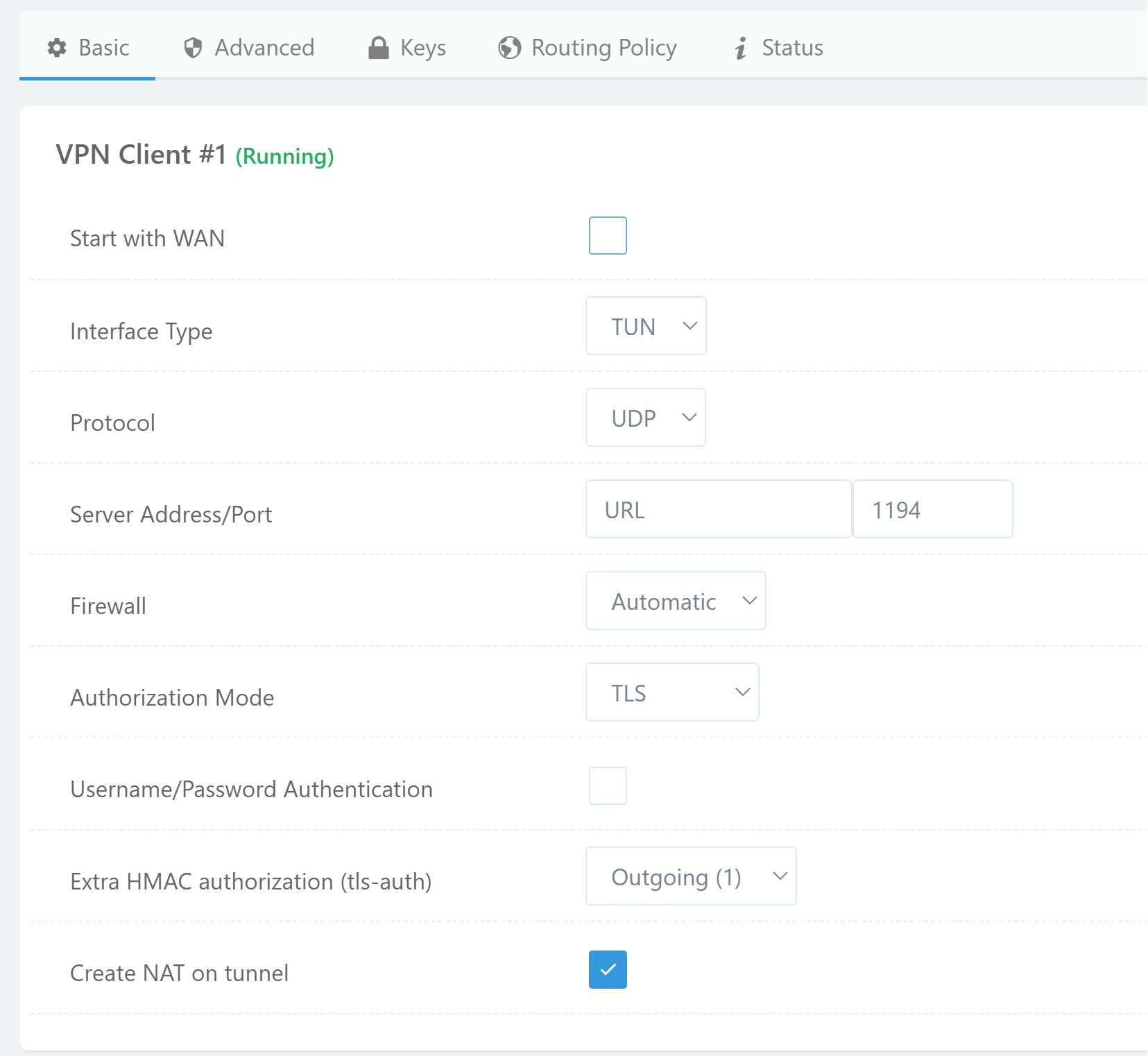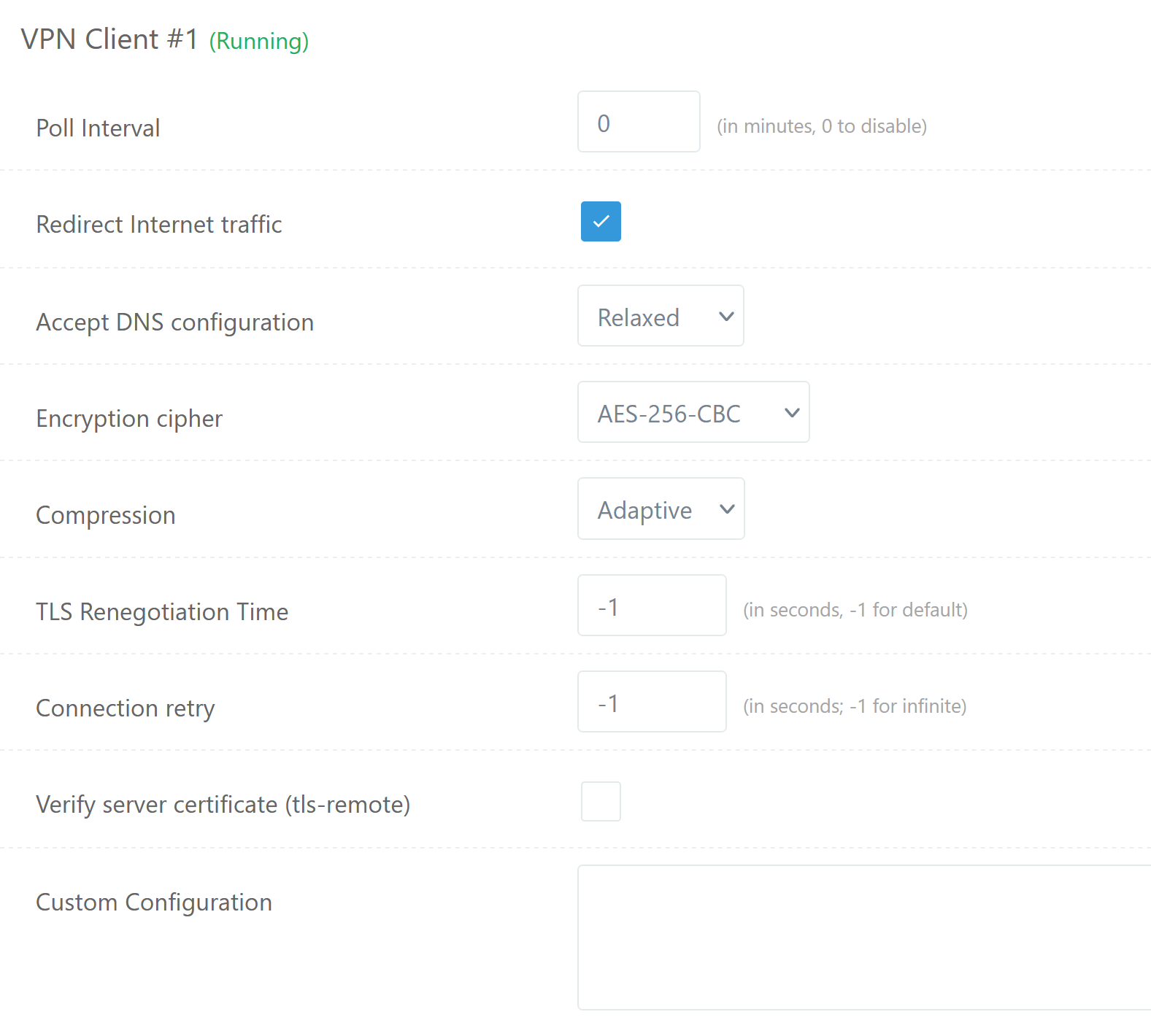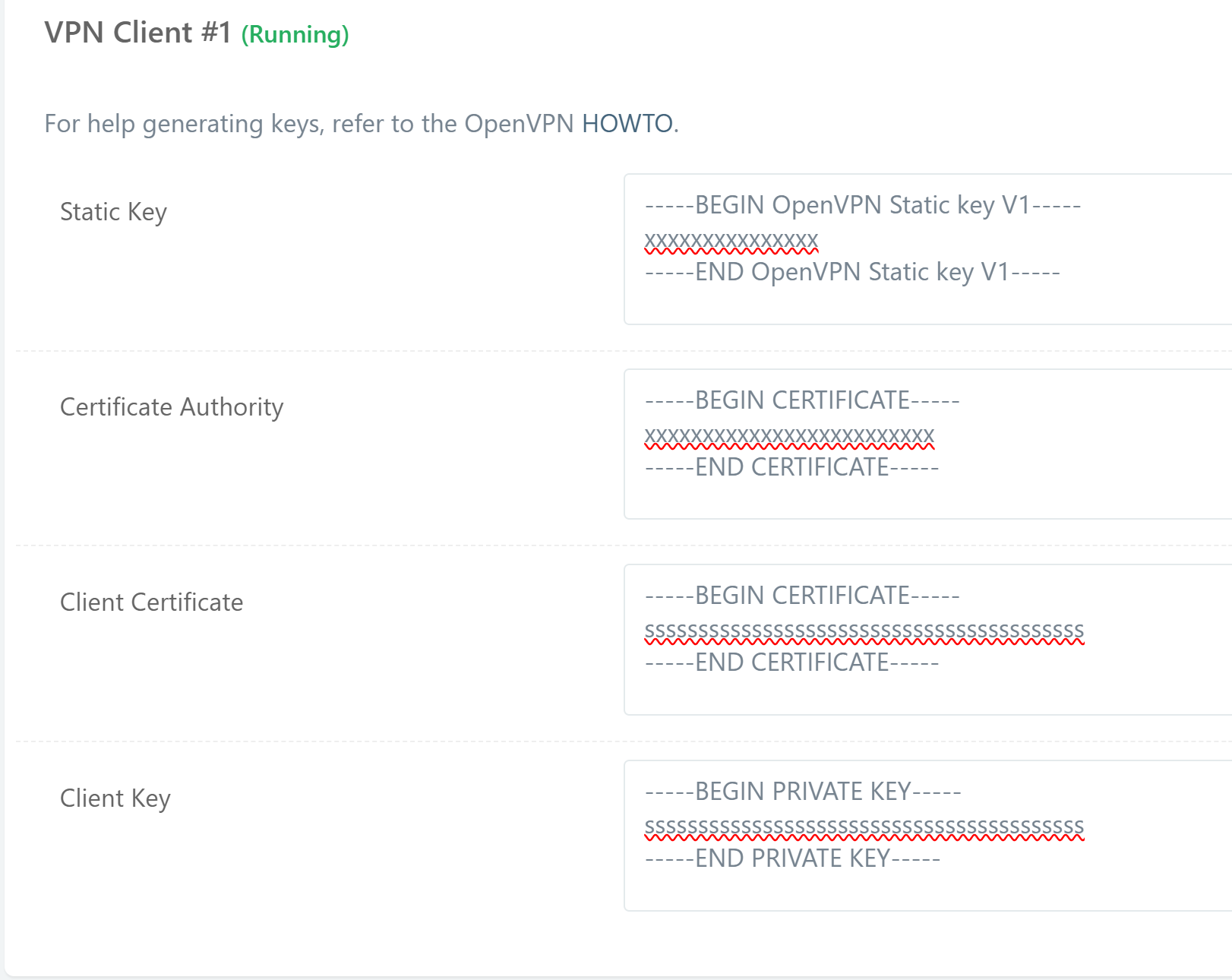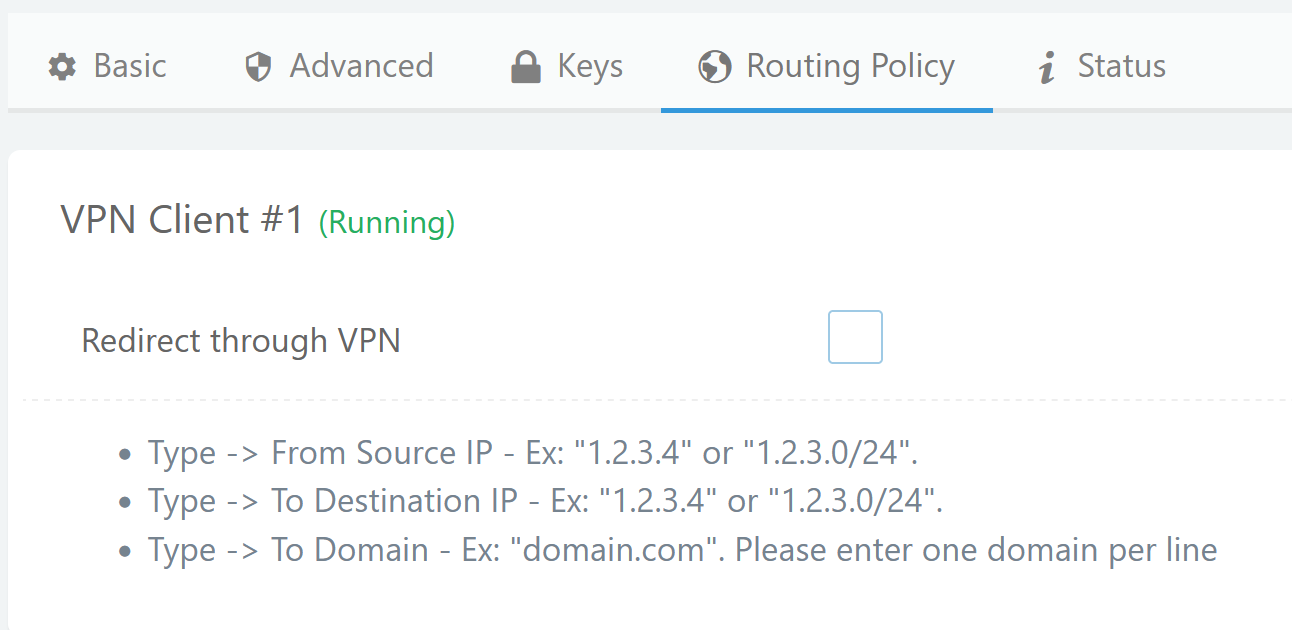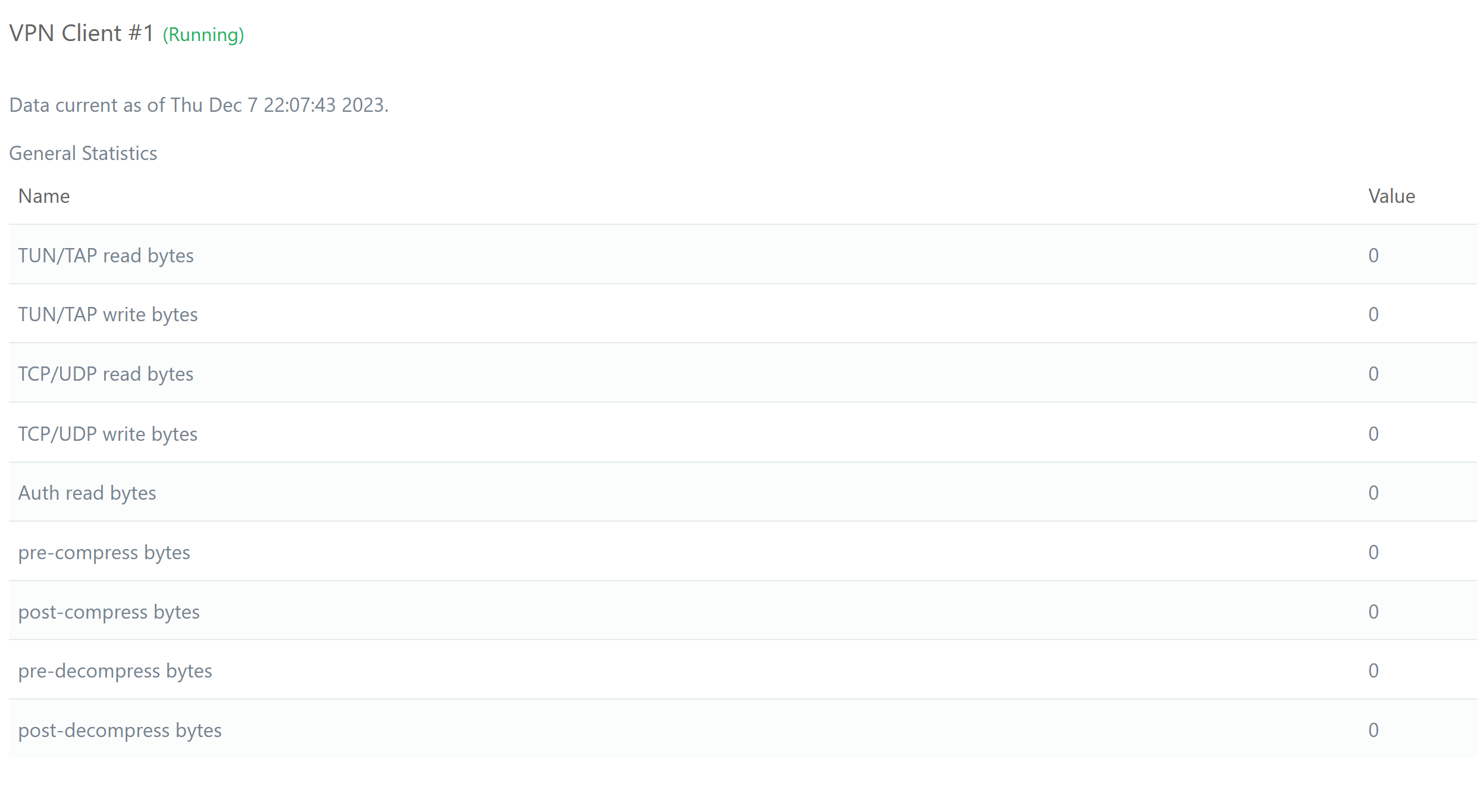I have a PIVPN OpenVPN server in one fixed location. In another location, I have a Netgear R6400 wifi router with Advanced Tomato installed which I would like to be an OpenVPN client. This would allow technological noobs to connect to my VPN by simply connecting to this wifi router. I generated a client conf file for that router but I can’t figure out what the Tomato settings should be to get the router to connect to the server successfully. I know the PIVPN server works and that the configuration file works, because I can use a laptop to connect to the server (btw I wasn’t trying to have the router and laptop connect at the same time with the same conf file).
I read the documentation for PIVPN and Tomato but couldn’t find anything but copy-and-paste instructions for specific commercial VPN services like Surfshark, rather than for self-created OpenVPN servers or PIVPN in particular. I found a few reddit and Github threads but their circumstances were different and a resolution wasn’t made with PIVPN. I tried changing most settings but there’s so many permutations it is difficult to tell what’s helping. DD-WRT provided a little more feedback making me think that TLS negotiation may be failing, but ultimately I switched to Tomato because DD-WRT was asking for parameters which aren’t in the config. URL and keys obviously removed in the screenshots below
This is the client conf file:
client
dev tun
proto udp
remote URL 1194
resolv-retry infinite
nobind
remote-cert-tls server
tls-version-min 1.2
verify-x509-name raspberrypi_XXXXX name
cipher AES-256-CBC
auth SHA256
auth-nocache
verb 3
<ca>
-----BEGIN CERTIFICATE-----
XXXXX
-----END CERTIFICATE-----
</ca>
<cert>
-----BEGIN CERTIFICATE-----
XXXX
-----END CERTIFICATE-----
</cert>
<key>
-----BEGIN PRIVATE KEY-----
XXXXX
-----END PRIVATE KEY-----
</key>
<tls-crypt>
#
# 2048 bit OpenVPN static key
#
-----BEGIN OpenVPN Static key V1-----
XXXXX
-----END OpenVPN Static key V1-----
</tls-crypt>
These are the Tomato setting pages:
